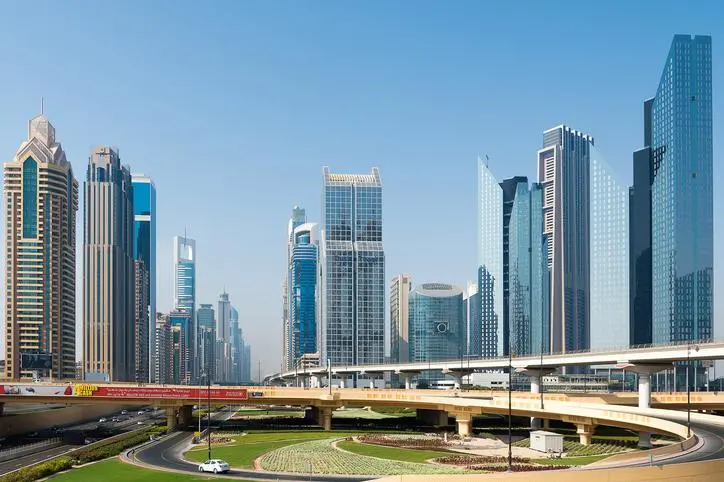PHOTO
The UAE continues to strengthen its position as a hub for fintech startups as the country is home to highest number of startups and investments into this nascent sector, thanks to government support and initiatives taken by the financial free zones in Dubai and Abu Dhabi.
According to Bloomberg Intelligence, the UAE is home to the highest number of fintech startups at 67 followed by 44 in Turkey, 30 each in Jordan and Lebanon. While South Africa leads in Africa with 184 startups followed by 146 in Nigeria, 111 in Kenya, 36 in Ghana, 34 in Egypt and 24 in Uganda.
Bloomberg Intelligence sees need for more venture capital to fund growing fintech startups. The number of fintech startups and investments into this sector will continue to rise in the coming years, increasing from 96 in 2019 to 465 by 2022 in the Middle East, while investments will increase from $287 million in 2019 to $2.28 billion by 2022, according to Accenture analysis based on CBI Insights data.
"Strong momentum will start from 2019. Even though the UAE showed a fast growing number of fintech startups, the level of investment in the region is still modest. In more than $90 billion by 2017 invested in fintech startups globally since 2010, only 1 per cent was allocated to companies in the Middle East and Africa," the report said.
"Fintech friendly regulatory environment, government support and higher level of funding are supporting the UAE in its journey," said Edmond Christou, GCC financials analyst for Bloomberg Intelligence.
Citing example, he said Dubai Financial Services Authority introduced in 2017 an innovation-testing licence, allowing fintech firms to develop concepts without being subject to full regulations. Also, Abu Dhabi's Financial Services Regulatory Authority set up in 2016 a regulatory laboratory with a legislative framework, which was the first of its kind in the region to support innovators.
Commenting on what the UAE can do more to expedite the growth, Christou said there should be a policy that continues to support innovation to keep up with the pace of technological changes and its risk, an environment that attracts talents and allows banks and insurers to prove the value and applicability of these technologies to the market.
Arif Amiri, CEO, Dubai International Financial Centre (DIFC) Authority, said DIFC's ecosystem continues to attract fintech startups with its unique experimental licences, market leading pricing and collaborative workspaces.
"We are committed to supporting this ecosystem by strengthening our international partnership network. Just last year, we have signed over 10 fintech-related MoUs that have strengthened our partnerships with other global fintech hubs, such as New York, London, Paris, Singapore, among others. In addition, our very own home-grown initiatives, such as FinTech Hive at DIFC and the DIFC's $100 million FinTech startups fund continue to play a crucial role in shaping the future of the financial landscape in the MEASA region," Amiri said.
The centre offers dedicated commercial licenses for fintech, regtech and insurtech firms, an interactive and collaborative workspace as well as access to the region's largest financial community - all available for entrepreneurs looking to set up and operate from Dubai.
Commenting on the growth prospects, Amiri said DIFC's fintech ecosystem of over 80 fintech-related companies, 34 of which are active registered companies in the fields of fintech, insurtech and regtech, is testament to the growing demand and interest in this disruptive sector.
"In 2018, applications for the second cohort of FinTech Hive at DIFC tripled, while the number of partners that are committed to the programme doubled. This continued growth is testament to a healthy sector that is well on its way to transform and dictate the future of finance," he added.
Khalid Saad, CEO, Bahrain FinTech Bay, said regional market for the fintech industry is small but potential is huge.
"When people tell me that Bahrain, Dubai and Abu Dhabi are competing with each other, I say, no, that is the wrong way of looking at things. It is not a zero-sum game. The market is still small in the region and currently the opportunities are huge and it requires a lot of collaboration. We have started expand collaboration and partnered with the DIFC FinTech Hive and ADGM. We are working with them to explore different avenues which we could collaborate and help fintech firms access different markets across the border," Saad said during a recent meeting.
Commenting on potentially creating a fintech unicorn from the Gulf region, he pointed out that it would require a company to expand way beyond the GCC to hit the potentially unicorn status.
"There are quite a few fintech unicorns globally, so why not one from the region as well in the next 5 years. I think investments to flow in fintech regionally and are expected to quadruple in the next 5 years. I hope more smart money has started to flow into the region and that should help make the next unicorn," Saad added.
Fintech's first wave centered on payments while the second wave focuses on mobile and online banking by offering less costly, faster and better user-experiences. Fintech's third wave has started to emerge with some banks adopting blockchain technology, startups growing in fields like insurance, regulation, risk solution and identity verification (KYC).
Not just conventional, the UAE is leading in Islamic fintech startups as well in the Middle East. Globally, Indonesia has the highest number of Islamic fintech startups, followed by the US, the UAE and the UK, according to DinarStandard analysis.
Copyright © 2019 Khaleej Times. All Rights Reserved. Provided by SyndiGate Media Inc. (Syndigate.info).





















